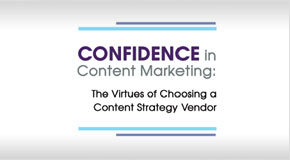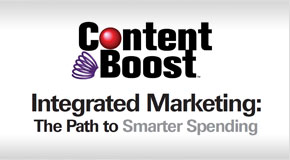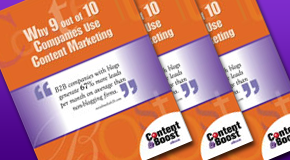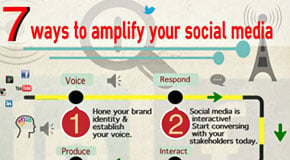|

Healthline Survey Reveals Americans Know Sugar is Bad, But Cannot Stop Eating It
SAN FRANCISCO, Nov. 17, 2016 /PRNewswire/ -- Healthline.com, the #2 health information website, conducted research among over 3,000 Americans on their knowledge of sugar and how it affects the body to gauge their relationship about their own sugar consumption and the effects it has on them. The Healthline Sugar Survey finds that while Americans are aware of the negative effects of sugar, they aren't doing much about it because they don't actually know how. With this information, the company is launching today its #BreakUpWithSugar campaign, http://www.healthline.com/health/sugar/breakupwithsugar, featuring a series of articles, shareable infographics, animations, videos and social events.
 Two out of 3 survey respondents said that sugar was their main concern (over fat and carbs) and admit they need to reduce their sugar intake. Many told us they feel guilty about eating sugar but their answers show that they don't fully understand how much sugar is contained in their foods, nor do they fully comprehend the role of sugar in physical addiction.
The survey reveals surprising data and sobering insights: few have succeeded in achieving a healthy relationship with sugar; most of us seek to eat less sugar but fail. The majority of those surveyed admit to eating too much sugar yet 3 out of 4 do not know the recommended amount of added sugar to take in on a daily basis. Two out of 3 guess wrong on sugar contents of popular foods and 70% don't know how many grams are in a teaspoon of sugar nor the calorie equivalent.
While only 1 in 10 reported successfully breaking up with sugar, the majority of us feel guilty, misinformed and confused about our relationship with sugar. Healthline's conclusion: it's time to shed greater light on sugar: where we are in our relationship cycle; what science has told us and how to do something about it.
"Our findings reveal that Americans are a nation of sugar lovers, but we know our relationship with sugar isn't healthy. As a provider of health and wellness content, it is our responsibility at Healthline to put a spotlight on this toxic and addictive substance and to provide the information and resources which help all of us break up with sugar. Scientific research has shown that along with obesity and tooth decay, sugar is linked to serious illnesses including heart disease, cancer, diabetes, Alzheimer's,fatty liver disease and insulin resistance. It also can contribute to skin issues, the aging process and be highly addictive," said David Kopp, CEO of Healthline Media, Inc. "Personally I am outraged about sugar. I broke up with sugar. It was easier and more rewarding than I imagined and we are now encouraging all Americans to do the same."
The Healthline survey did reveal a high percentage of people seek foods labeled as having little or no sugar. More than half, 56 percent, said while shopping, they prioritized the label designating "no sugar added" and 32 percent looked for "sugar free" foods. Only 10 percent said they don't look at food labels, but for those who do, over 1 in 3 (38%) don't trust food labels.
By July 26, 2018 the Nutrition Facts label for packaged foods are required to change including listing "total sugar" and "added sugars."1 Americans are in for quite a surprise as to the actual amount of total and added sugar packaged food items really contain as today significant amounts of added sugar are hidden in the ingredients listing and not the Nutrition Facts. There are over 60 different names for sugar -- most unrecognizable to the average consumer.
Additionally, there seems to be a misunderstanding when it comes to foods that contain a high amount of sugar that aren't perceived to be as sugar-laden as categories that overtly contain sugar as a central ingredient, such as cake, ice cream, and sweetened cereal. For example, when respondents were asked to select the food item with the most sugar in pairings, they incorrectly assumed common baked goods and dessert contained more sugar than a yogurt with fruit or an energy bar.
Adding complexity is also the fact that the vast majority (76 percent) were not aware of the American Heart Association's daily recommendation for added sugar intake —Men (36 grams/9 teaspoons/150 calories) and Women (24 grams/6 teaspoons/100 calories).2 The amount of sugar that is considered "too much" has not been engrained into the minds of most consumers as it has for other nutrition facts such as total calories, carbs, and fat.
"We lead with empathy first and foremost," said Tracy Stickler, Editor in Chief. "Whether it's being more conscious about the added sugars in our diets, reducing our daily intake or breaking an addiction, we need help. With all the recent press about the politics of added sugar in our foods and who is to blame for the whitewashing of sugar, we decided the time was now to take the issues from the lobbying table to the dinner table along with trusted advice from experts and real life success stories."
"Our survey revealed to us that we really need to do something for the millions of people on our site," said Kopp. "A majority of our survey respondents know sugar is a problem, but don't fully understand its toxicity, addictiveness or most importantly how to break up with it. From recently passed sugary drink tax bills here in California to the many sugar-filled holidays upon us, this issue hits us right here right now."
About Healthline
The fastest growing health information brand reaching 50 million people monthly, Healthline's mission is to be a consumer's most trusted ally in the pursuit of health and well-being. Healthline provides socially-inspired, medically-reviewed and data-driven content to help us all live stronger, healthier lives.
* The Healthline surveys were conducted September 22 – October 5, 2016 among a national sample of 2,723 Healthline visitors and a national sample of 500 online consumers. Findings are statistically significant at a 95% confidence level, with +/- 5% margin of error.
**Healthline.com is the 2nd largest Health Information domain in the Digital population, reaching 26,407,000 UV's according to comScore Media Metrix/US only/September 2016. Healthline's global monthly reach is over 50 million per Google Analytics.
References:
- Changes to the Nutrition Facts Label. May 27, 2016. FDA.gov. New Nutrition Facts label for packaged foods to reflect new scientific information, including the link between diet and chronic diseases. Manufacturers will need to use the new label by July 26, 2018. http://www.fda.gov/Food/GuidanceRegulation/GuidanceDocumentsRegulatoryInformation/LabelingNutrition/ucm385663.htm
- Sugar 101. American Heart Association. http://www.heart.org/HEARTORG/HealthyLiving/HealthyEating/Nutrition/Sugar-101_UCM_306024_Article.jsp#.V_8HqvkrI0M
MEDIA CONTACTS: Rachel Albert
[email protected]
212-886-6704
Nan-Kirsten Forte
[email protected]
201-783-6201
Photo - http://photos.prnewswire.com/prnh/20161117/440945-INFO
Photo - http://photos.prnewswire.com/prnh/20161117/441007-INFO
To view the original version on PR Newswire, visit:http://www.prnewswire.com/news-releases/healthline-survey-reveals-americans-know-sugar-is-bad-but-cannot-stop-eating-it-300365670.html
SOURCE Healthline.com

[ Back To Homepage ]
|

 Whitepaper
Whitepaper 
 Whitepaper
Whitepaper 
 Whitepaper
Whitepaper 
 Whitepaper
Whitepaper 
 eBook
eBook 
 Flyer
Flyer 
 Flyer
Flyer 
 Webinar
Webinar 





